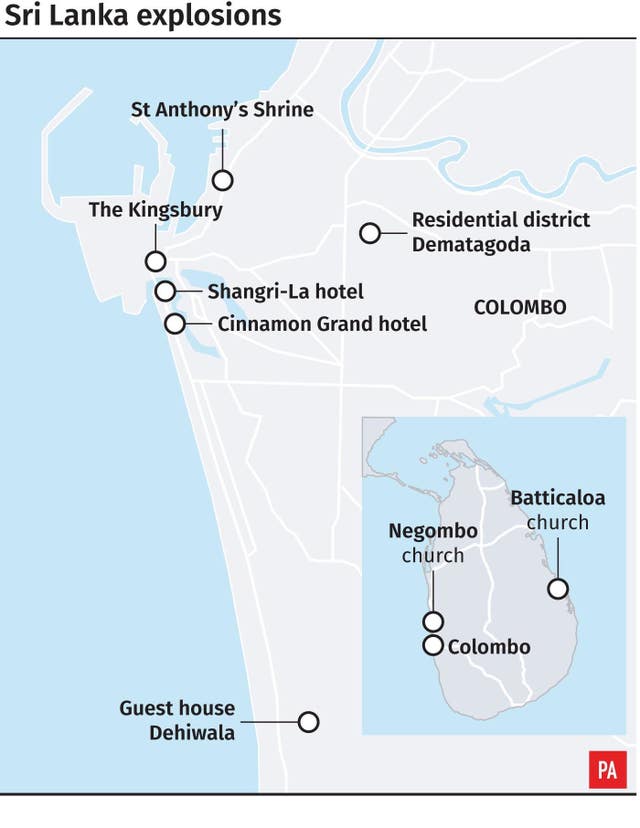Sri Lankan military handed special powers after deadly bombings
The military was given a wider berth to detain and arrest suspects — powers that were used during the civil war but withdrawn when it ended.

Sri Lanka’s president has given the military sweeping powers after the Easter bombings that killed nearly 300 people, while officials revealed that intelligence agencies warned weeks ago of the possibility of an attack by the radical Muslim group blamed for the bloodshed.
The suicide bombings struck three churches and three luxury hotels on Sunday in the island nation’s deadliest violence since a devastating civil war ended in 2009.
The government shut down some social media, armed security forces patrolled the largely deserted, central streets in the capital of Colombo, and a curfew came into effect.

Prime minister Ranil Wickremesinghe said he feared the massacre could unleash instability and vowed to “vest all necessary powers with the defence forces” to act against those responsible.
Adding to the tension, three bombs blew up on Monday inside a van parked near one of the stricken churches as police were trying to defuse them, sending pedestrians fleeing in panic. No injuries were reported.
Dozens of detonators were discovered near Colombo’s main bus depot, but officials declined to say whether they were linked to the attacks.
The government blocked access to Facebook, WhatsApp and Instagram after the blasts, creating confusion and doing little to reassure residents and visitors that the danger had passed.
A nationwide state of emergency is scheduled to begin, the president’s office said, following the attacks that killed at least 290 people, with more than 500 wounded, according to police spokesman Ruwan Gunasekara.

Tourism minister John Amaratunga said 39 foreigners were killed, although the foreign ministry put out a different figure, saying the number was 31.
The Sri Lankan government said victims were from the US, the UK, Bangladesh, China, India, France, Japan, the Netherlands, Portugal, Saudi Arabia, Spain, Turkey and Australia.
A national day of mourning was declared for Tuesday.
Health minister Rajitha Senaratne said intelligence agencies began issuing the warnings on April 4. The defence ministry wrote to the police chief with information that included the group’s name, and police wrote on April 11 to the heads of security of the judiciary and diplomatic security division.
President Maithripala Sirisena, who was out of the country on Sunday, had ousted Mr Wickremesinghe as PM in October and dissolved the cabinet. The Supreme Court later reversed his actions, but the prime minister has not been allowed into meetings of the Security Council since October, which meant he and his government were in the dark about the intelligence.
All the bombers were Sri Lankans, but authorities said they strongly suspected foreign links, Mr Senaratne said.
Also unclear was a motive. The history of Buddhist-majority Sri Lanka, a country of 21 million including large Hindu, Muslim and Christian minorities, is rife with ethnic and sectarian conflict.
The co-ordinated blasts took place in the morning at St Anthony’s and the Cinnamon Grand, Shangri-La and Kingsbury hotels in Colombo, as well as the two churches outside Colombo.
A few hours later, two more blasts occurred just outside Colombo, one at a guesthouse where two people were killed, the other near an overpass, said Brigadier Sumith Atapattu, a military spokesman.
Also, three police officers were killed while searching a suspected safe house on the outskirts of Colombo when its occupants apparently detonated explosives to prevent arrest, authorities said.





